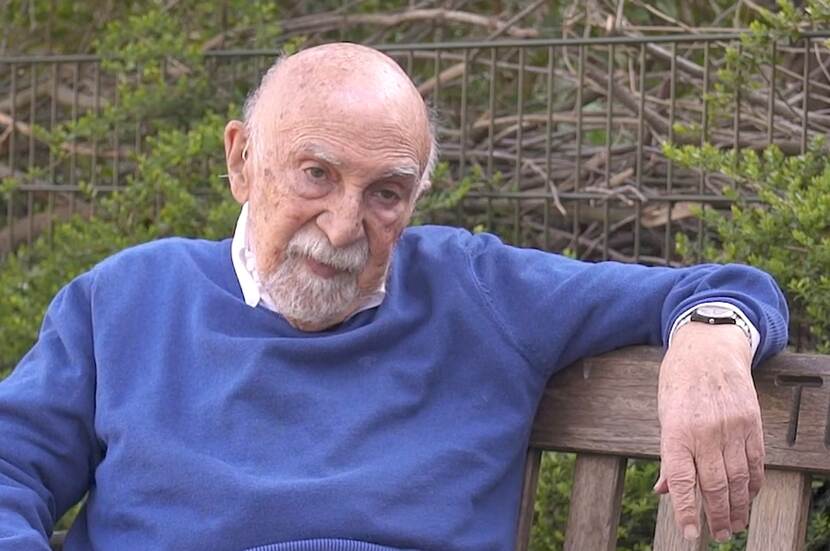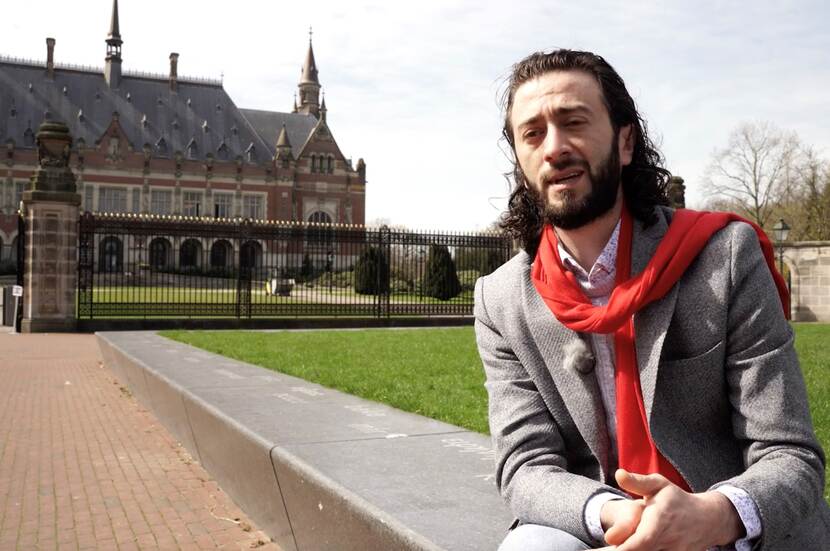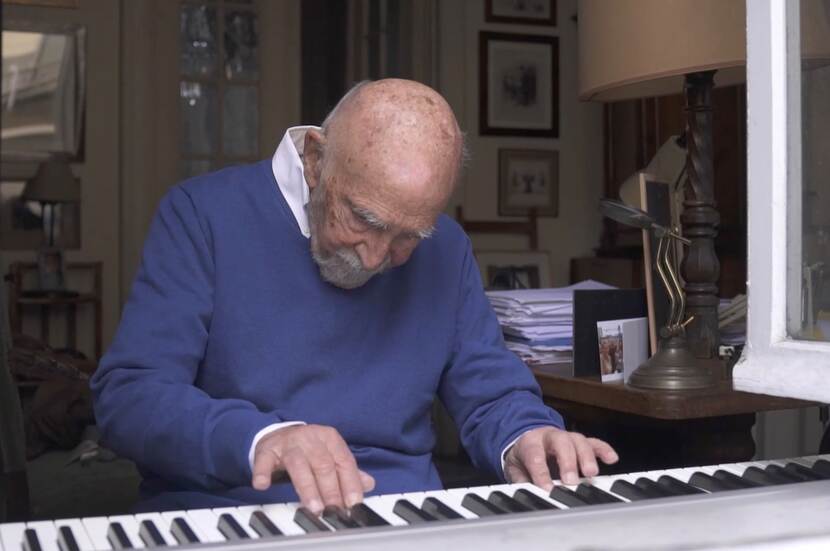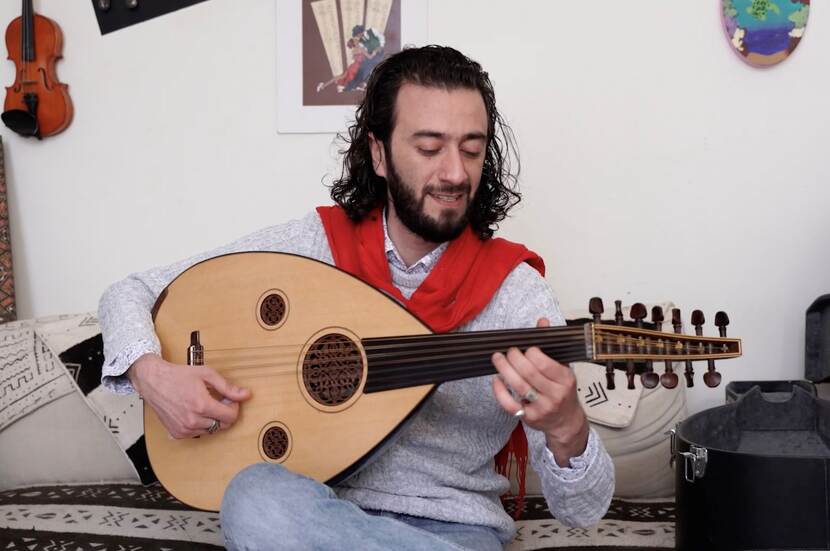Peace through justice: 75 years of the International Court of Justice
The International Court of Justice (ICJ) is 75 years old. From its seat at the Peace Palace in The Hague, this United Nations body works to promote peace by resolving conflicts between countries by judicial means. Simon Gronowski, a Holocaust survivor, and Amer Shanati, who fled the war in Syria, will be attending the celebrations. Two different people with two different stories, both of whom are convinced that a world without the ICJ would be a less safe place. And they also have one other major thing in common.
Simon and Amer’s lives bookend the full history of the Court of Justice. Seventy-eight years ago, Simon – with his mother’s help – managed to escape from the train to Auschwitz. His mother and sister did not survive the Holocaust. Palestinian-Syrian Amer fled the violence of the war in Syria that has now been raging for 10 years. In an online music programme on Sunday 18 April to celebrate the ICJ’s 75th anniversary, Simon and Amer will talk about their experience of war and their passion for music.


Peace through justice
As a lawyer, Simon can’t emphasise the importance of ‘peace through justice’ enough. ‘Thanks to the International Court of Justice, we now have hope that interstate conflicts can be resolved not through war and violence, but through law and justice,’ he says. ‘This is essential in the fight against the barbarism, fascism and anti-Semitism that I myself was a victim of.’
Justice for victims of the Syrian civil war
Amer was forced to flee the war in Syria. He is grateful that now he’s in the Netherlands he can sleep easy again, though he is still haunted by his memories of the war. At present the Netherlands and Canada are working to achieve justice for the victims of the war in Syria. Last year, the Netherlands held Syria responsible under international law for gross human rights violations, acting under the conviction that guilty parties must be held to account for their crimes. This process may ultimately end up at the ICJ if the countries concerned cannot achieve a resolution via negotiations and arbitration. For the Netherlands, the ICJ is therefore the most important international legal body when it comes to achieving peace through justice.

A musical bond
Simon and Amer are not only bonded by their experiences of war and violence. Both are also musicians and use the power of music to unite people. Besides being a lawyer, Simon is also a jazz pianist. He regularly opens up the windows of his Brussels home, sets up his electric piano on the window sill and cheers up the neighbours with an impromptu performance. ‘The idea came during the first lockdown in 2020, when my daughter suggested I open the window and entertain the neighbours and people out enjoying a walk.’

Amer was a full-time musician in Syria, where he headed a music school with over 100 students. ‘I had to close the school because of the war in my country,’ he says. ‘For three years after that, I was able to give lessons to children who’d suffered from the violence, but eventually even that became impossible, and I had to flee Syria.’ Now, in The Hague, music again plays a key role in his life. He works as a music teacher and is the founder of the Hague Orchestra for Peace. ‘I want to use my orchestra and my music lessons to reach children of all cultural backgrounds. By playing together, you get to know each other. And once you know each other there’s less chance of conflict. In that sense music, like the International Court of Justice, is a tool for fostering peace and security.’
75th Anniversary: online music programme
Music played a big role in the 75th anniversary of the International Court of Justice. The celebrations featured the online world premiere of a new arrangement of the Hymne des Nations, performed by harpist Lavinia Meijer and the Residentie Orkest The Hague, and conducted by Vincent de Kort. A call for solidarity, the programme’s aim is to show the power of music to foster peace and justice. The original version of the Hymne des Nations was written in 1913 by the Jewish-Dutch composer Charles Grelinger (1873-1942) to mark the opening of the Peace Palace in The Hague, where the ICJ now has its seat. Grelinger died while en route to Auschwitz, but his music lives on. During this online event, Simon and Amer shared their personal stories. The entire event can be viewed here.